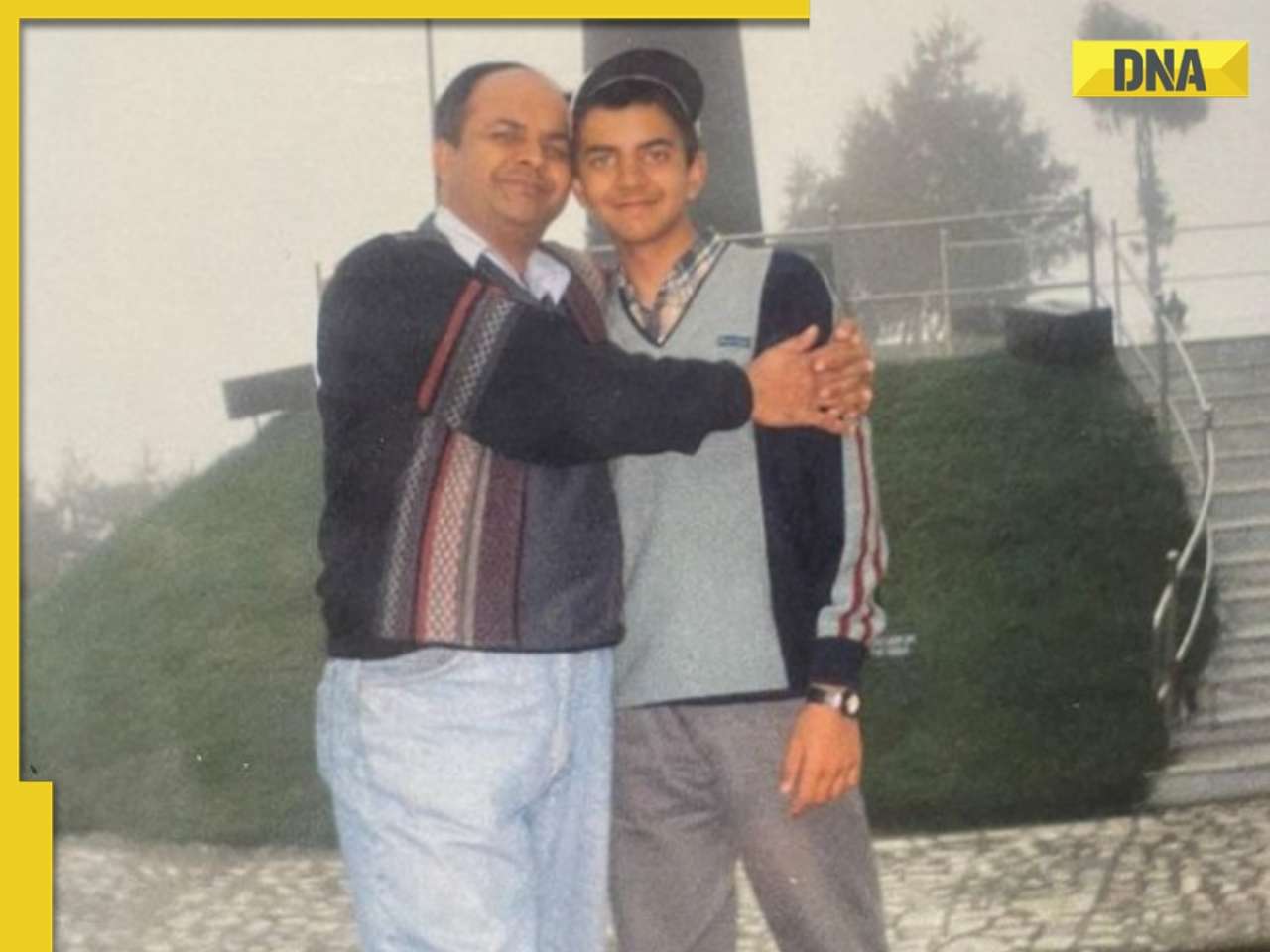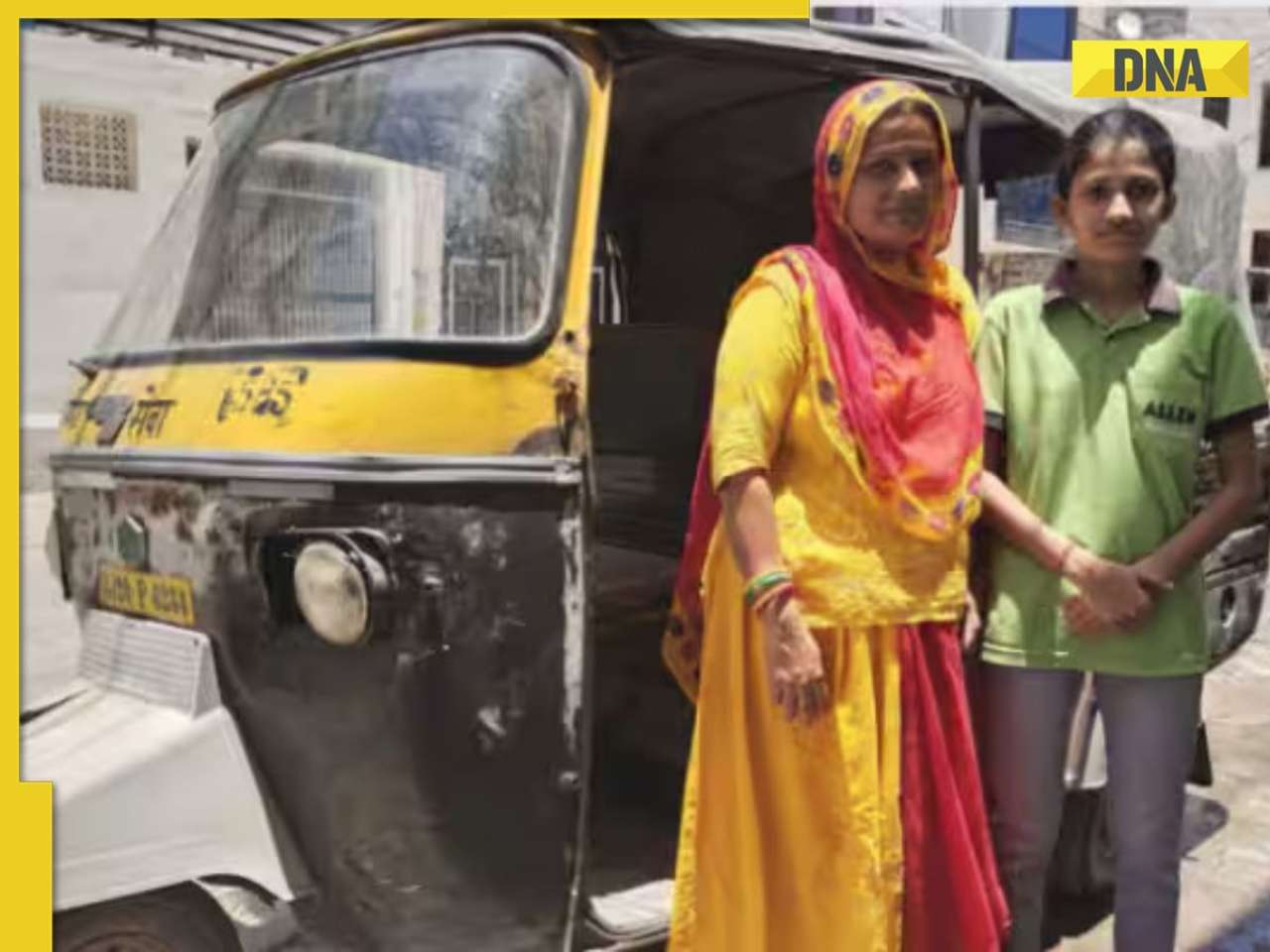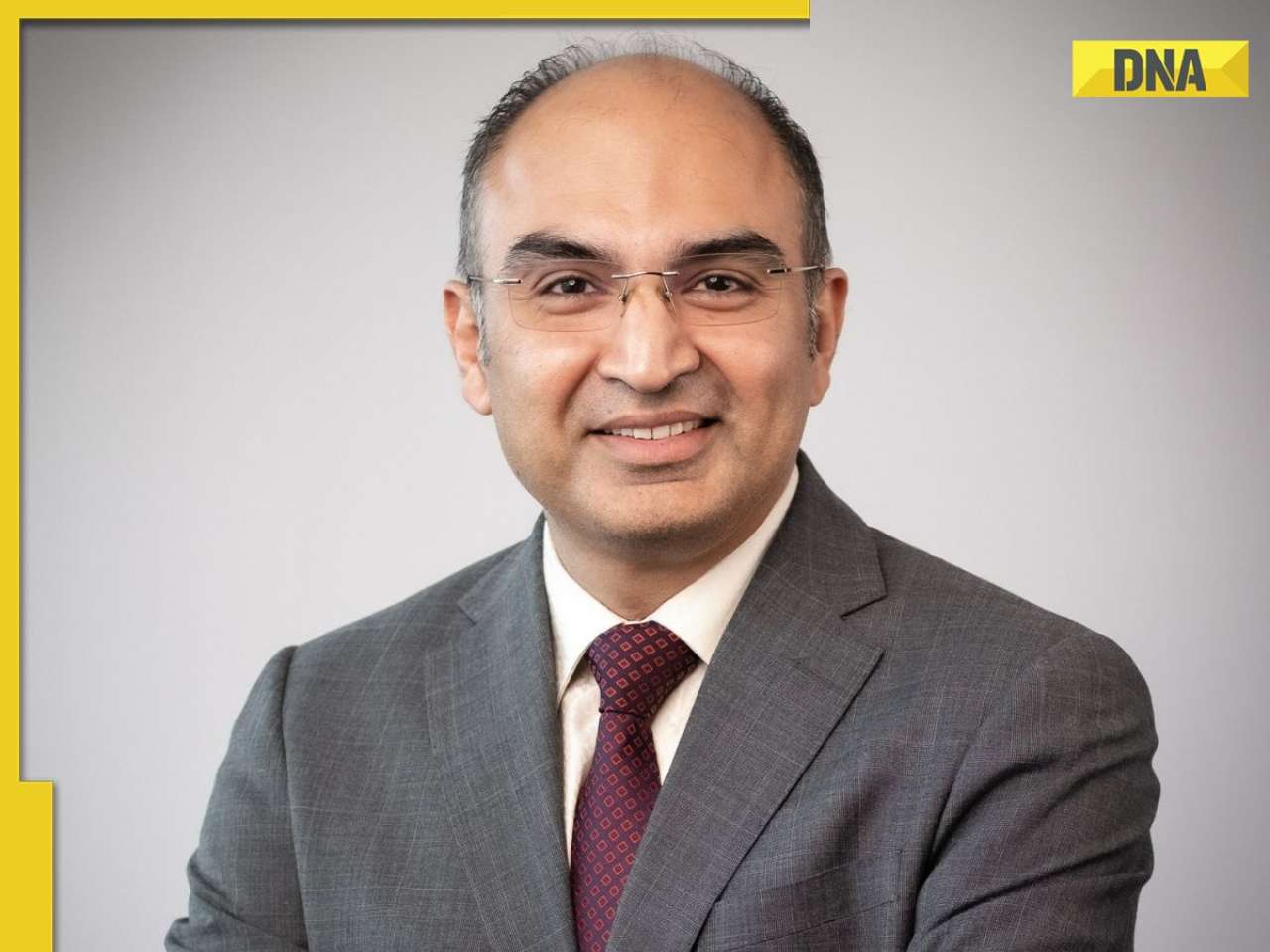Sumit Moitra catches up with Ganesh at his alma mater, where he had come down for a day to guide start-ups at IIM Calcutta Innovation Park.
He doesn't quite fathom why would someone need an app like Snapchat to take selfie that disappears within seconds or sites that sell luxuries for pets. For serial entrepreneur K Ganesh, future of start-ups in India lies in solving basic necessities of life. He should know. From starting Customer Asset that later become Firstsource, one of country's leading ITeS ventures, to pioneering TutorVista where Indian teachers gave online tutions to overseas students, Ganesh has never failed in his ventures. Much sought after in tech-circle for his gyan, this IIM-Calcutta graduate is now spending time solving some of the daily problems of life through start-ups like BigBasket, a leading online grocer to Portea that provides medical care at home, and many others. Sumit Moitra caught up with Ganesh at his alma mater, where he had come down for a day to guide start-ups at IIM Calcutta Innovation Park.
Q. What are the big trends you see in foreseeable future? Consumer Drones? Healthcare? Mobile entertainment?
A. Many of the horizontal opportunities for e-commerce have already been addressed in India for the top 20-30 million people, the mobile savvy people. The next opportunity lies in addressing the need of the next 100 million people. What this means is that vernacular would be the medium and that the service, involving chat commerce, should have to be mostly voice and messaging based. In technology, opportunity lies in Internet of Things, drones, 3D Printing and robots in manufacturing when their costs come down, which will all make simple repetitive tasks automated. And as this would lead to more free time, people would utilise it to consume digital entertainment, which is another big opportunity.
Q. You and Meena (Ganesh) set up Customer Asset way back in 2000 followed by TutorVista in 2006. A decade has passed since then. How different is the environment now for entrepreneurs like you to start a new venture?
A. Few things have definitely changed. One is that because of early successes and role models, lot many people are becoming entrepreneurs and their average age has come down dramatically. When we started up, no one would have supported a start-up opened by a kid just out of college. Can he manage? Can he recruit? Now, with successes of ventures promoted by youngsters like Ola, Flipkart and others, no one asks such questions. The second change is that lot of support systems have come up like incubators, accelerators and angel investors. Third, because of lot of media attention, which has celebrated both successful and not-so-successful ventures, the social stigma of failure has gone. At my time, a start-up guy was just someone without a decent government or even a good private sector job. I used to get ridiculed, and people thought this person is either laid off or unemployable. That social stigma has gone.
Q. The sector has at last caught the fancy of the government, which has launched its own grand Start Up India initiative. But some don't welcome government playing a role through promoting start-ups. What's your view?
A. I would like to see the implementation of the initiative before passing a judgement. How good or bad a scheme is, is largely dependent upon implementation. Till then, I would reserve my judgement. But having said that, there's an unconditional thumps up, and personally, I am extremely happy with whatever has been done by this government. I will tell you why. The only thing the earlier government did, and I have no political biases, was create problems for the industry just because some guy benefited from the telecom scam. It forced the government to say that any business valuation should be fair otherwise it would get taxed. This messed up the whole start-up sector. In order to fix misuse by some are corporates, the previous government stifled the whole start-up sector. Secondly, start-ups were never seen as a sector. This government has completely changed its attitude. They have recognised the employment generating capabilities of this sector while the event gave centre stage publicity to this sector. Fourth, the start-up policy document is very clear in its objectives, and has to be supported. We have seen a phenomenal shift in mindset and approachability. But I must also add that there are things like an inter-ministerial Board, which will approve whether you are a start-up, must be rejected completely. None of my start-ups are going to apply to such a Board. Hopefully they would remove those things. There's also this Rs 10,000 crore corpus about which I have reservations unless that is implemented properly. The fund is definitely needed, say, to promote a start-up that tries to solve problems of Odisha. No venture capital fund would support them as they are only into projects started by people sitting in places like Bangalore. Since this is so much money, utilisation is important, which would ideally get channelised into social businesses in tier 2 and tier 3 cities. If you can implement it properly, that would be brilliant. So, in terms of objective, intent and noise, it's perfect.
Q. Coming to valuations, some say valuations have peaked... but it's a relative term.
A.I think people confuse between valuation and price. What is being discussed in the media is actually price. Valuation is intrinsic to a company, based on fundamentals of a company, which doesn't change every month like stock prices. Prices depend on demand and supply. Flipkart commands such a high price only because lot many VCs are willing and chasing to fund it. Are valuations high in a bull market? Yes, they are. Will they get corrected? Chances are they will. This is part of the cycle. But I am not scared by valuation. Nor I am scared by any correction that might take place, as these are purely functions of demand and supply.
Q. What would be the key major challenges before start-ups? Will it be raising funds? What are the other hurdles?
A. Capital raising would be a major challenge in coming days. Two, technology is changing so fast, the challenge would be being the first prime mover in disrupting the status quo. We have seen how Capital raising would be a major challenge in coming days. Two, technology is changing so fast, the challenge would be being the first prime mover in disrupting the status quo. We have seen how Olas and Ubers of the world have taken the place of Meru cabs in Mumbai. It never happened in past that businesses were made defunct in such a short period of time. Third, there are now lot of not-so-savvy investors coming into the start-up ecosystem. They are carried away by the hype without understanding the nuances of angel investing. A lot of unqualified money has come into the system. When the correction happens, they are the ones who would run away first. This will trigger an outflow. We will suddenly see angel money drying up.
Q. What about many me-too start-ups crowding a sector? You are behind BigBasket. There are many others trying to survive in the online grocer space.
A. I don't see all of them existing. They will either consolidate or shutdown. In a horizontal business, unless you raise a lot of capital, it's difficult to survive. You need capital as well as skill in such a low-margin business to survive.
Q. Tell us about your ventures.
A. I had started four companies, and sold all of them. Now I am running 11 ventures, all started in the last four years from scratch. Coming to think of it, this is only possible in India. Would I be able to find enough business opportunities to set up so many ventures in US? Certainly no. They have solved most of their basic problems. So, to succeed there you have to be a genius to come up with something like Snapchat, with an idea is so brilliant – where you take a selfie that disappears within few seconds - that I can't even understand. Here in India, so many thinks are broken, opportunities exist everywhere. Take BigBasket, where we are not doing anything new. Started four years back, we are now in 12 major cities and would expand to 26 cities. The last valuation was at $420 million. Or Take Portea, where we provide nurses and physiotherapists at home, not a very unique business idea. In India, you don't really have to be a genius to become a successful entrepreneur.
Next opportunity for start-ups lies in solving the basic necessities of life, says K Ganesh, serial entrepreneur.
![submenu-img]() Anant Raj Ventures into tier 2 and tier 3 cities, pioneering growth in India’s real estate sector
Anant Raj Ventures into tier 2 and tier 3 cities, pioneering growth in India’s real estate sector![submenu-img]() Sophie Turner reveals she wanted to terminate her first pregnancy with Joe Jonas: 'Didn't know if I wanted...'
Sophie Turner reveals she wanted to terminate her first pregnancy with Joe Jonas: 'Didn't know if I wanted...'![submenu-img]() Meet outsider who was given no money for first film, battled depression, now charges Rs 20 crore per film
Meet outsider who was given no money for first film, battled depression, now charges Rs 20 crore per film![submenu-img]() This is owner of most land in India, owns land in every state, total value is Rs...
This is owner of most land in India, owns land in every state, total value is Rs...![submenu-img]() Meet man who built Rs 39832 crore company after quitting high-paying job, his net worth is..
Meet man who built Rs 39832 crore company after quitting high-paying job, his net worth is..![submenu-img]() Meet woman who first worked at TCS, then left SBI job, cracked UPSC exam with AIR...
Meet woman who first worked at TCS, then left SBI job, cracked UPSC exam with AIR...![submenu-img]() Meet engineer, IIT grad who left lucrative job to crack UPSC in 1st attempt, became IAS, married to an IAS, got AIR...
Meet engineer, IIT grad who left lucrative job to crack UPSC in 1st attempt, became IAS, married to an IAS, got AIR...![submenu-img]() Meet Indian woman who after completing engineering directly got job at Amazon, then Google, Microsoft by using just...
Meet Indian woman who after completing engineering directly got job at Amazon, then Google, Microsoft by using just...![submenu-img]() Meet man who is 47, aspires to crack UPSC, has taken 73 Prelims, 43 Mains, Vikas Divyakirti is his...
Meet man who is 47, aspires to crack UPSC, has taken 73 Prelims, 43 Mains, Vikas Divyakirti is his...![submenu-img]() IIT graduate gets job with Rs 100 crore salary package, fired within a year, he is now working as…
IIT graduate gets job with Rs 100 crore salary package, fired within a year, he is now working as…![submenu-img]() DNA Verified: Is CAA an anti-Muslim law? Centre terms news report as 'misleading'
DNA Verified: Is CAA an anti-Muslim law? Centre terms news report as 'misleading'![submenu-img]() DNA Verified: Lok Sabha Elections 2024 to be held on April 19? Know truth behind viral message
DNA Verified: Lok Sabha Elections 2024 to be held on April 19? Know truth behind viral message![submenu-img]() DNA Verified: Modi govt giving students free laptops under 'One Student One Laptop' scheme? Know truth here
DNA Verified: Modi govt giving students free laptops under 'One Student One Laptop' scheme? Know truth here![submenu-img]() DNA Verified: Shah Rukh Khan denies reports of his role in release of India's naval officers from Qatar
DNA Verified: Shah Rukh Khan denies reports of his role in release of India's naval officers from Qatar![submenu-img]() DNA Verified: Is govt providing Rs 1.6 lakh benefit to girls under PM Ladli Laxmi Yojana? Know truth
DNA Verified: Is govt providing Rs 1.6 lakh benefit to girls under PM Ladli Laxmi Yojana? Know truth![submenu-img]() In pics: Taarak Mehta Ka Ooltah Chashmah actress Deepti Sadhwani dazzles in orange at Cannes debut, sets new record
In pics: Taarak Mehta Ka Ooltah Chashmah actress Deepti Sadhwani dazzles in orange at Cannes debut, sets new record![submenu-img]() Ananya Panday stuns in unseen bikini pictures in first post amid breakup reports, fans call it 'Aditya Roy Kapur's loss'
Ananya Panday stuns in unseen bikini pictures in first post amid breakup reports, fans call it 'Aditya Roy Kapur's loss'![submenu-img]() Remember Harsh Lunia? Just Mohabbat child star, here's how former actor looks now, his wife is Bollywood's popular...
Remember Harsh Lunia? Just Mohabbat child star, here's how former actor looks now, his wife is Bollywood's popular...![submenu-img]() Mother's Day 2024: Bollywood supermoms who balance motherhood, acting, and run multi-crore businesses
Mother's Day 2024: Bollywood supermoms who balance motherhood, acting, and run multi-crore businesses![submenu-img]() Rocky Aur Rani's Golu aka Anjali Anand shocks fans with drastic weight loss without gym, says fitness secret is...
Rocky Aur Rani's Golu aka Anjali Anand shocks fans with drastic weight loss without gym, says fitness secret is...![submenu-img]() Haryana Political Crisis: Will 3 independent MLAs support withdrawal impact the present Nayab Saini led-BJP government?
Haryana Political Crisis: Will 3 independent MLAs support withdrawal impact the present Nayab Saini led-BJP government?![submenu-img]() DNA Explainer: Why Harvey Weinstein's rape conviction was overturned, will beleaguered Hollywood mogul get out of jail?
DNA Explainer: Why Harvey Weinstein's rape conviction was overturned, will beleaguered Hollywood mogul get out of jail?![submenu-img]() What is inheritance tax?
What is inheritance tax?![submenu-img]() DNA Explainer: What is cloud seeding which is blamed for wreaking havoc in Dubai?
DNA Explainer: What is cloud seeding which is blamed for wreaking havoc in Dubai?![submenu-img]() DNA Explainer: What is Israel's Arrow-3 defence system used to intercept Iran's missile attack?
DNA Explainer: What is Israel's Arrow-3 defence system used to intercept Iran's missile attack?![submenu-img]() Sophie Turner reveals she wanted to terminate her first pregnancy with Joe Jonas: 'Didn't know if I wanted...'
Sophie Turner reveals she wanted to terminate her first pregnancy with Joe Jonas: 'Didn't know if I wanted...'![submenu-img]() Meet outsider who was given no money for first film, battled depression, now charges Rs 20 crore per film
Meet outsider who was given no money for first film, battled depression, now charges Rs 20 crore per film![submenu-img]() Meet actress who quit high-paying job for films, director replaced her with star kid, had no money, now lives in...
Meet actress who quit high-paying job for films, director replaced her with star kid, had no money, now lives in...![submenu-img]() This star kid's last 3 films lost Rs 5000000000 at box office, has no solo hit in 5 years, now has lost four films to...
This star kid's last 3 films lost Rs 5000000000 at box office, has no solo hit in 5 years, now has lost four films to...![submenu-img]() Meet actress viral for just walking on screen, belongs to royal family, has no solo hit in 15 years, but still is…
Meet actress viral for just walking on screen, belongs to royal family, has no solo hit in 15 years, but still is…![submenu-img]() This is owner of most land in India, owns land in every state, total value is Rs...
This is owner of most land in India, owns land in every state, total value is Rs...![submenu-img]() Blinkit now gives free dhaniya with veggie orders, thanks to Mumbai mom
Blinkit now gives free dhaniya with veggie orders, thanks to Mumbai mom![submenu-img]() Meet man, an Indian who entered NASA's Hall of Fame by hacking, earlier worked on Apple's...
Meet man, an Indian who entered NASA's Hall of Fame by hacking, earlier worked on Apple's...![submenu-img]() 14 majestic lions cross highway in Gujarat's Amreli, video goes viral
14 majestic lions cross highway in Gujarat's Amreli, video goes viral![submenu-img]() Here's why Isha Ambani was not present during Met Gala 2024 red carpet
Here's why Isha Ambani was not present during Met Gala 2024 red carpet






































)
















)
)
)
)
)
)